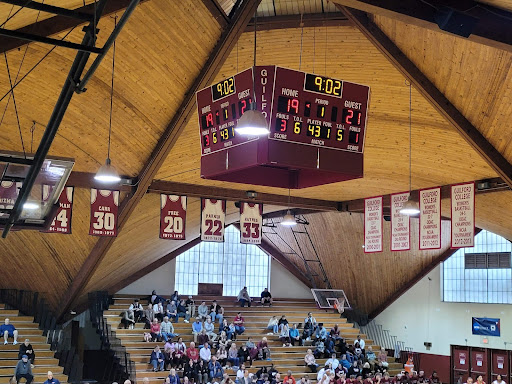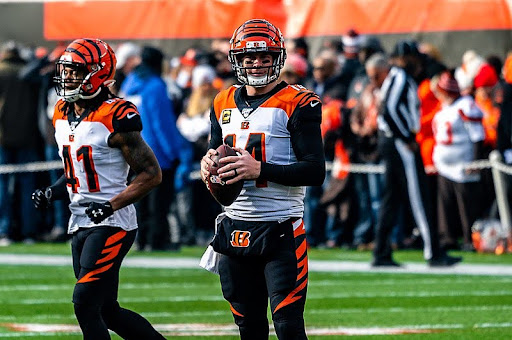In a small college like Guilford, student athletes are a major part of the community.
On top of carrying the workload most traditional students are burdened with, they must balance their athletic duties.
The men’s basketball team, for example, practices six days a week and has two games a week in season.
“You really have to manage your time well,” said Zachary Houston, a sophomore on the men’s team. “On top of school work you have basketball practice, games and a social life.”
Although Guilford is a tight-knit community, there is one divide that has been talked about amongst the student body for a while, and that is the student-athlete and traditional student divide.
Student-athletes in general have a lot of extra pressures put on them compared to their peers.
When it comes to a social life, and what you choose to do off the court, athletes have even less choice.
They must tread lightly because if they do anything that could be perceived by administration to make the team, or Guilford, look bad, there are harsh repercussions.
A lot of traditional students do not realize that a consequence of playing at Guilford as a student-athlete means you are routinely drug- tested.
Senior Hannah Schewel is a student here and represents Guilford as a member of our community equally to anyone else.
“Drug testing student-athletes is an unfair double standard,” said Schewel.
“I understand performance- enhancing drugs, but non-student athletes are out there smoking and drinking recreationally, and just because athletes play sports shouldn’t mean Guilford should be able to drug test them for what they do socially outside of practice and games.”
In conducting a 2013 national study of substance use habits of college student-athletes, the NCAA surveyed around 21,000 student-athletes in different sports and divisions.
They found that 32.9 percent had used marijuana at least once, and 22 percent of those had used in the last year.
Student-athletes often turn to recreational drugs to help manage the pain and fatigue of the sport they play.
Is it really realistic to hold athletes to such an antiquated standard, stacking even more pressure onto their education path than they already have?
If athletes are getting tested, theoretically should not honors students, community volunteers or students with scholarships be getting drug tested too?
It would erase the double standard, but it would also be difficult to drug-test almost every student at Guilford, especially considering the loss revenue the school would incur.
“When I was on the baseball team, I was chosen to get drug tested,” said Noel Edward Anthony Baker III, senior and former baseball player. “I failed, and when I put it into perspective, I decided to quit the team because I couldn’t take the chance that I’d get suspended from school and jeopardize my education.”
Baker and other student-athletes should not lose their place at Guilford due to their need to seek a way to repair the damage to their bodies they sustain promoting the Guilford name through sport.
Nor should a school based on the Quaker value of equality incentivize a double standard.






